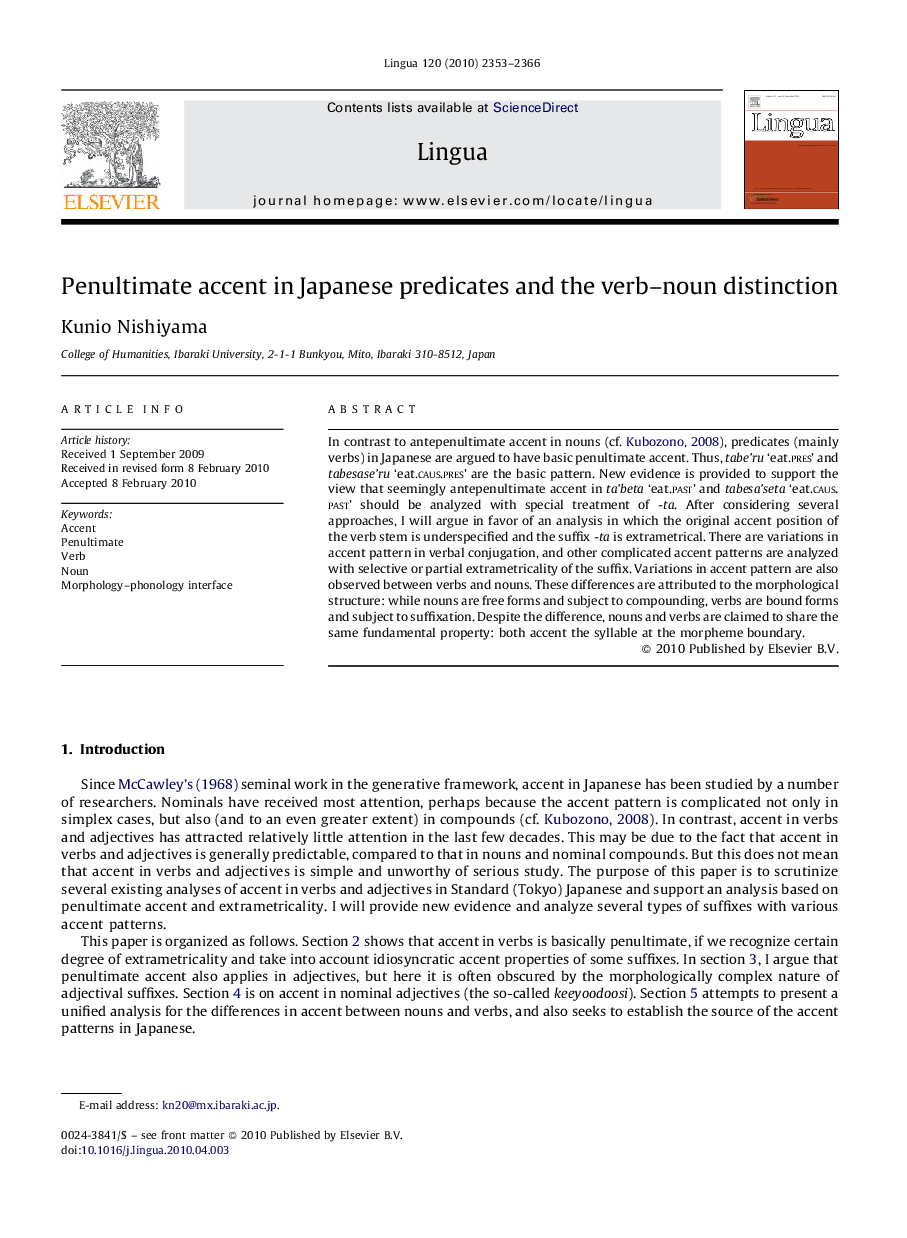| کد مقاله | کد نشریه | سال انتشار | مقاله انگلیسی | نسخه تمام متن |
|---|---|---|---|---|
| 935675 | 923907 | 2010 | 14 صفحه PDF | دانلود رایگان |

In contrast to antepenultimate accent in nouns (cf. Kubozono, 2008), predicates (mainly verbs) in Japanese are argued to have basic penultimate accent. Thus, tabe’ru ‘eat.pres’ and tabesase’ru ‘eat.caus.pres’ are the basic pattern. New evidence is provided to support the view that seemingly antepenultimate accent in ta’beta ‘eat.past’ and tabesa'seta ‘eat.caus.past’ should be analyzed with special treatment of -ta. After considering several approaches, I will argue in favor of an analysis in which the original accent position of the verb stem is underspecified and the suffix -ta is extrametrical. There are variations in accent pattern in verbal conjugation, and other complicated accent patterns are analyzed with selective or partial extrametricality of the suffix. Variations in accent pattern are also observed between verbs and nouns. These differences are attributed to the morphological structure: while nouns are free forms and subject to compounding, verbs are bound forms and subject to suffixation. Despite the difference, nouns and verbs are claimed to share the same fundamental property: both accent the syllable at the morpheme boundary.
Journal: Lingua - Volume 120, Issue 10, October 2010, Pages 2353-2366